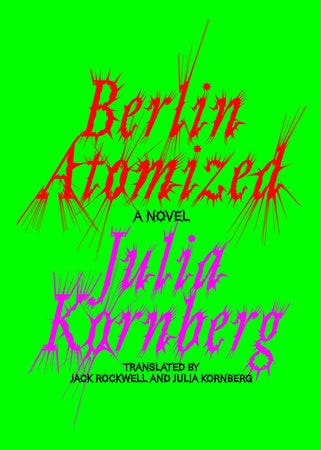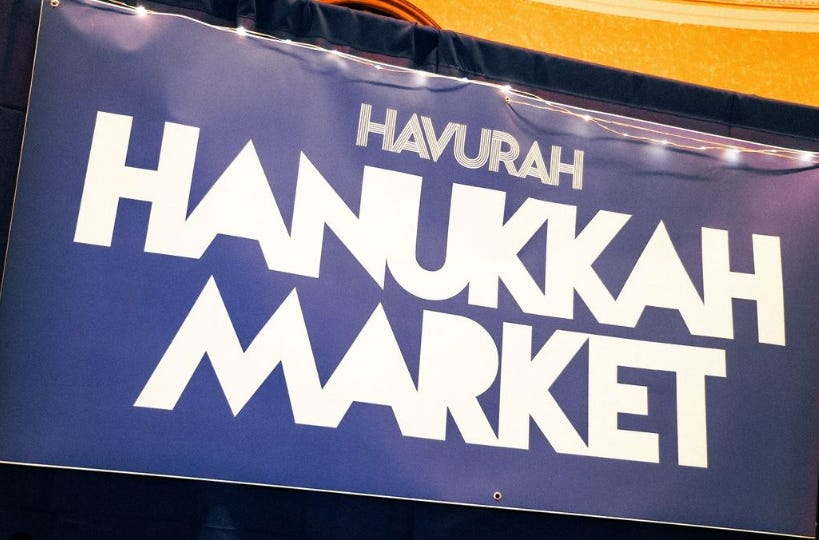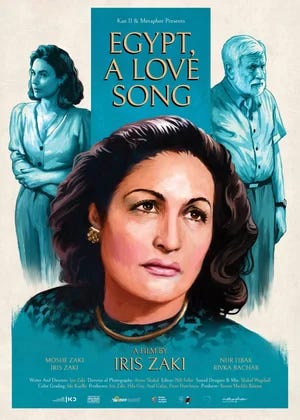Hi friends! This week’s edition comes from Yehuda Fogel, who brings us Hymietown—a narrated review of Jewish cultural happenings in and around New York City, from music and art to film and beyond. Yehuda, a writer and editor at 18Forty (formerly of the Lehrhaus), tours the City's quirky, vibrant, and sometimes imagined world of Jewish life and takes us along for the ride. It’s a playful and insightful exploration of what makes Jewish culture in NYC so unique. Over to Yehuda!

In a January 1984 interview with Washington Post reporter Milton Coleman, the Rev. Jesse Jackson referred to New York City as “Hymietown,” home to so many “Hymies,” or Jews. Jackson assumed that Coleman wouldn’t print the remarks, but he did. The Hymie community was understandably in an uproar, but not all reactions were equally negative; In a sketch that year on SNL, Eddie Murphy parodied Jackson and tried to “explain it all in song,” in “Hymietown.” The song is timeless:
I want to form a new coalition of soul people and bagel people, from the chitlin district to the diamond district, from catfish to gefilte fish, we all need to live as one. I want to look out over the crowd and see both leather hats and yarmulkes side by side. So come on, you brothers and sisters, you hymies and hymettes!
In singing this, Murphy offers a New York response to Jackson. Yes, New York City is full of Jews, Murphy can be read as saying—but need that divide us? Can’t we laugh at the Jewishness of New York, and find points of contact, connection, and shared meaning-making?
Walter Benjamin, Hymie, writer, friend (of Scholem, Arendt, Adorno, etc), and the last holder of a mysterious briefcase, is one of the great thinkers of the city in modern life. Remembering his youth in “A Berlin Childhood around 1900,” he opens with these words:
Not to find one's way about in a city is of little interest. But to lose one's way in a city, as one loses one's way in a forest, requires practice.
For this the street names must speak to one like the snapping of dry twigs, and the narrow streets of the city center must reflect the time of day as clearly as a mountain valley.
I learned this art late in life: it fulfilled the dreams whose first traces were the labyrinths on the blotters on my exercise-books.
I’ve lived in New York my whole life, but still get lost all the time. I walk out of a subway platform, my phone on three percent, and try for the life of me to figure out North from South. Just this week I found myself circling a six-block square in the Lower East Side for what felt like an eternity—walking from a chess spot to ice cream, back to the chess place, then to the subway—losing all sense of direction and a stable reality along the way. I’ve learned from Benjamin to see the city as less of a concrete jungle than a concrete labyrinth, one in which we are as well served losing our way as we are finding our way.
Best,
Yudl
My Cousin Avi, Summer Syndrome, and Supa Vilda @ Arlene’s Grocery
Local Jewish talent from Brooklyn, Summer Syndrome plays “indie orchestral emo pop,” to delightful effect. They were followed by Supa Vilda, another tight local band that plays funk that is both Jewier and nastier than should be allowed (see: “I can’t find my kippa”). I missed the opener, My Cousin Avi. Excellent budding Jewish talents.
Berlin Atomized @ McNally Jackson
I didn’t read this book before going to the author talk, and I wondered, not for the first time, about the utility of going to an author talk on a book I haven’t read. Authors are not the best interlocuters of their own work, through no fault of their own. I was tempted by the premise—a debut novel by a young Argentian-Jewish novelist that features three Jewish siblings decompressing against—and along—with the 21st century, in translation from the Spanish.
Regina Spektor @ Warsaw Brooklyn
Russian-Jewish songbird. Time capsule of Brooklyn circa 2015, flannel and broad-rimmed hats worn unironically. Spektor has astounding emotional and vocal range, although this listener enjoys her most when she holds back from excess. She suggests the regular eating of pierogies.
Havurah Hanukkah Market @ Upper West Side
Havurah is an art collective of young Jews with discerning tastes that emerged from the schools of downtown New York. One of the more generative scenes in “Jew york,” refreshingly free from some of the creative constraints of Jewish visual art and music. We often don’t realize the linings of our creative universe until we get a peek outside. Take a peek.
Egypt: A Love Song @ Meyerson JCC
A new documentary about Egyptian-Jewish singer Saoud Zaki. Zaki was a rising pop star and actress in mid-twentieth century Egypt, following the steps of Umm Kalthoumm, until her Muslim husband divorced her from afar and sued for custody of their son. To maintain custody and protect herself from her ex-husband’s powerful family, Zaki had to flee to a country without an Egyptian embassy—Israel. Decades later, Zaki’s ex-husband’s wife passed, and he and Zaki re-marry, in an astonishing twist of life. The movie is made by Zaki’s granddaughter and offers an excellent feel for mid-century Egypt. The story might have fared better as a dramatization than a documentary, which sometimes falls flat.
Upcoming happenings:
Yo La Tenga Hanukah show
Shelter: A Play written in the aftermath of October 7th @ The Tank (for tickets email atrsvp@newjewishnyc.com)











With re to this, he should have and grown men need to learn to watch their mouths: Jackson assumed that Coleman wouldn’t print the remarks, but he did.
Cool, more of these please 🙏